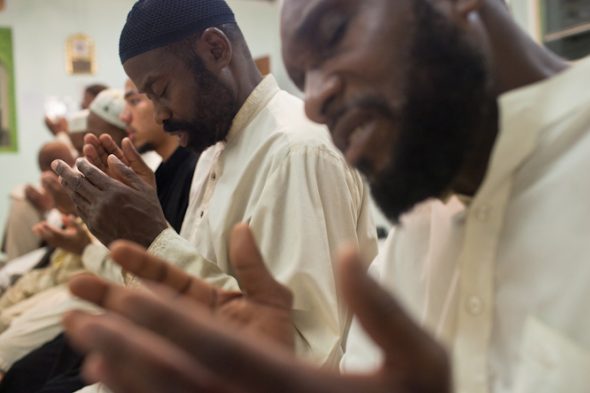By Bassam Tariq
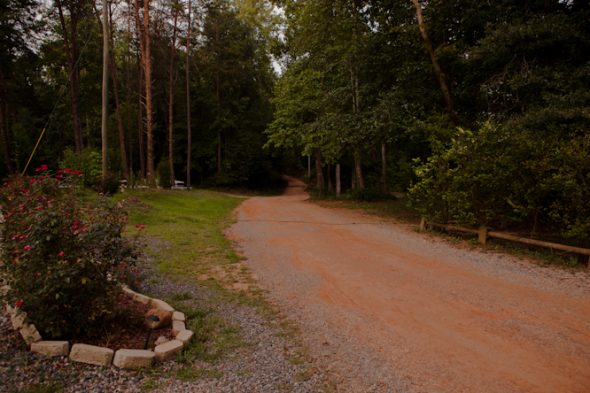
The entrance to Islamville.
Passed the confederate flags and horse ranches, a little entry way down a broken road leads to a small mobile home community. I drive slowly down the road and see three to four mobile homes lined up next to one another. A large African American man comes out wearing a shalwar kameez, a traditional South Asian garb, and greets us. He is the elder in the community and goes by Uncle Ali.
“We here are completely transparent. You can ask us anything.” Says Uncle Ali. “I fought with the mujahideen’s not in 1980, but in 1981. So get what we say right.”
Welcome to Holy Islamville.
The majority of the congregation is African American. Instead of saying “yes” or “okay” many of them reply saying, “acha” or “jee” the Urdu way of saying it.
The entire community has been inspired by Sheikh Mubarak Ali Gilani, who they call “abu” (father in Urdu) or “Shah-sahib.”
Sheikh Gilani was in the US in the early 1970’s and lived in Brooklyn. There, he began to connect with many of the African Americans.
“We knew there was something different about him,” says Abu Khalil, “he had a way to connect with us. We were drawn to him.”
In the early 1980’s, Sheikh Gilani led a very public “jihad campaign.” He encouraged many to go fight in Afghanistan against the Russians. He made his campaign public and sent out letters to the embassies, the US government, etc. No one seemed to pay attention.
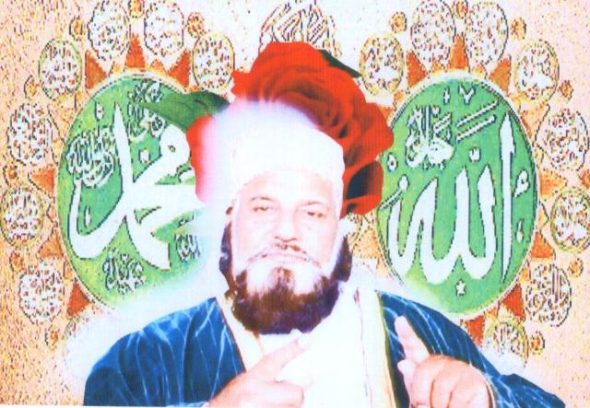
Sheikh Mubarak Ali Gilani. (Islamberg site)
After the campaign fell through Sheikh Gilani became concerned about the environment his students were living in. So him and his students began to buy property all across America and many of them began settling in rural parts of America. It was their Sheikh’s way to purify them.
“Out here, we are closer to Allah.” Uncle Musa tells me.
Uncle Musa is our de facto tour guide who shows us around the property. He brings us to the Holy Shrine where many students have seen the word “Allah” appear in light many times through. There is a fax machine on a pedestal because of a jammed paper miracle that occurred with it. The Sheikh directed his students to make the place a full-time shrine open for anyone to visit.
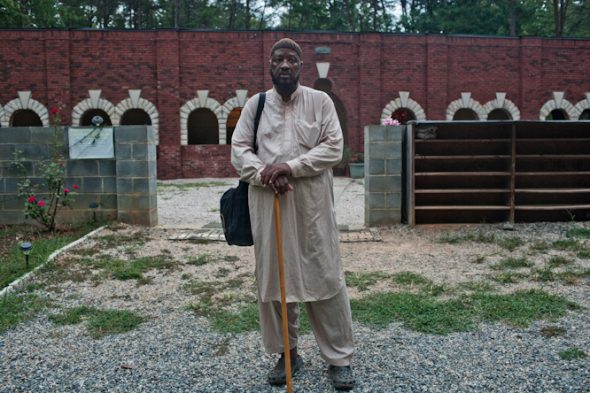
Uncle Musa stands outside of the Holy Shrine of Islamville.
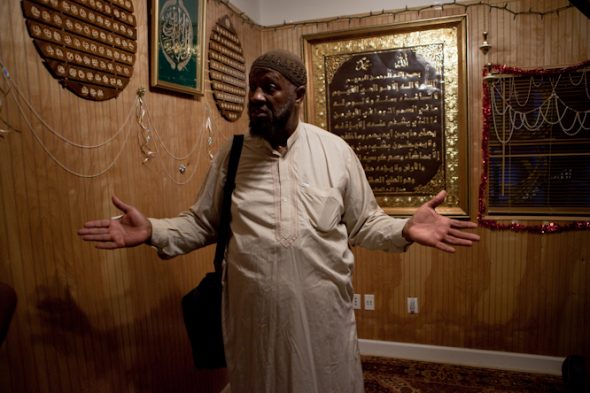
Uncle Musa shows some of the Islamic artwork done by the community
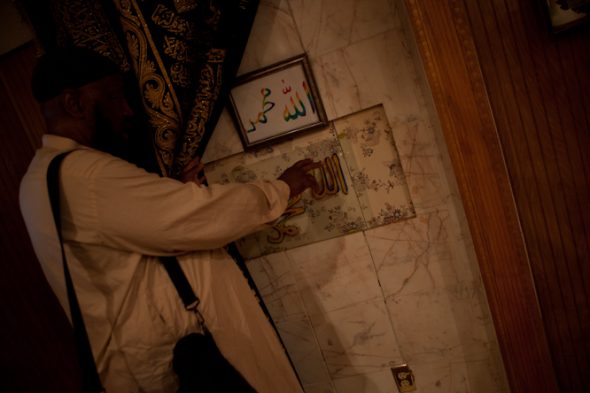
Uncle Musa points to one of the miracles seen by one of the women in the community.
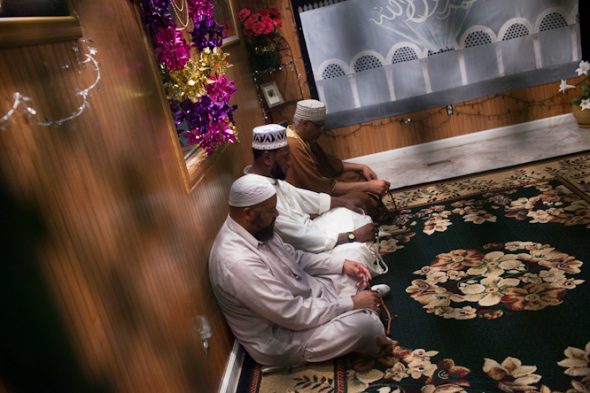
People do a silent dhikr, remembrance of God prayer, session inside the Holy Shrine.
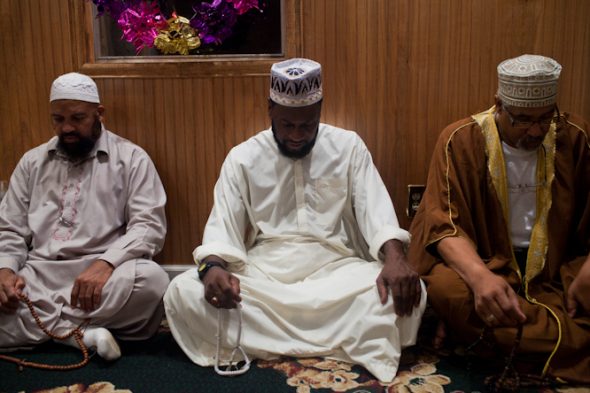
Silence.
Islamville opened in 1983 in a small rural corner in South Carolina. At the time, only five families migrated there. Now, there are about 20 families that live in the surrounding areas. The community tries to be as self-sufficient as they can. Some of the men raise goats and chicken, others educate the kids in the makeshift school and some have gone to Pakistan to learn the religion and live out on the farm. Instead of going to high school, the kids get their GEDs . College is encouraged. Many of them go to technical school, others become nurses and doctors. The community may keep the kids close in the beginning, but they encourage them to step out for working opportunities.
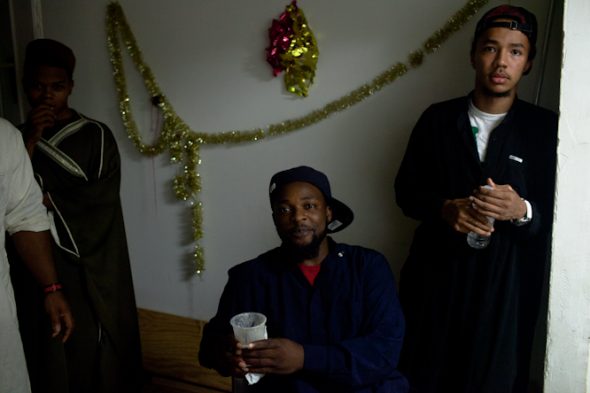
The young guys that have grown up and live around Islamville.
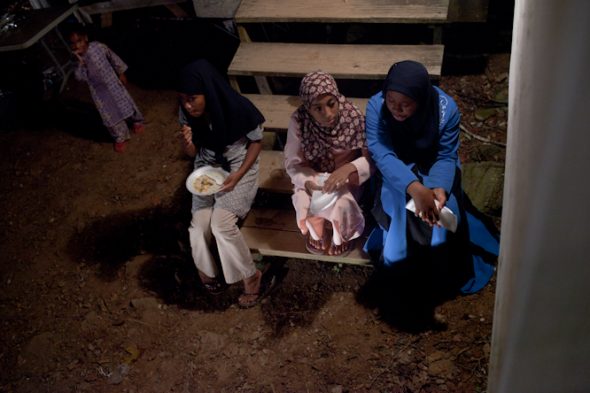
The girls from the community.
For break fast, we were served samosas, a traditional south Asian potato patty and then we had meat and potatoes for dinner.
“Ah aalu gosht!” I say in urdu.
“oh brother, you know what this is?” One of the community members says.
“Yeah, I am from Pakistan. This is food from the motherland.”
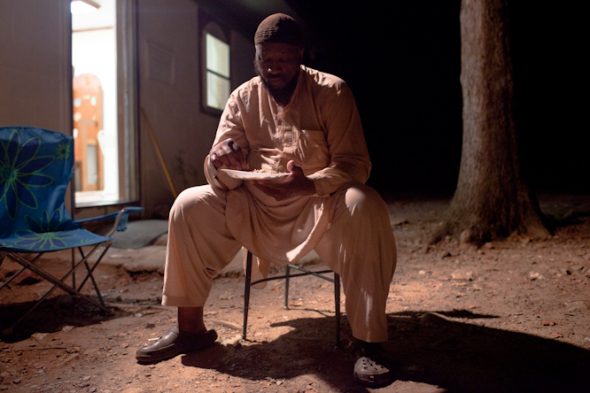
Uncle Musa chows down on potato and meat (aalu gosht).
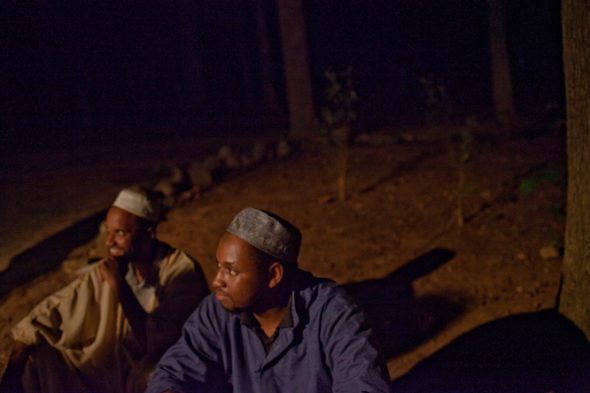
Uncle Musa’s son, right, sits with a friend as they hear a story from an elder in the community.
It’s hard not to notice the South Asian tendencies of the congregation. From the subtle hand gestures to the decorations in the mosque, I am reminded of the strong South Asian influence seething the entire township. The easiest way to notice the Pakistani influence is by watching the community sing on YouTube.
The first time I heard of Islamville was from a YouTube channel I saw of their sister community, Islamberg. The Islamberg community lives out in Bimnington, New York and they have a collection of Islamic songs and spiritual chants for people to watch. The mannerisms and singing style are shockingly similar to that from South Asia. Many of them have added their own take to it, but one can’t deny the heavy Pakistani overtones in all this.
Note: They are singing in Urdu.
Shaikh Gilani has gotten a lot of scrutiny in the media. The death of Daniel Pearl, a wall Street Journal reporter in Pakistan, has been linked to Sheikh Gilani since Pearl was on his way to meet the sheikh.
It was difficult for me to find anything objective of him online. The entire community that he represents is under attack in America. Whether the small townships he helped establish are called jihad training camps or extremist retreats, the community seems to have a lot of enemies.
(I tried to get some photos of Sheikh Gilani from the congregation but many refused to share their personal photos with him. They all forwarded me to the internet. Throughout the community and the shrine, not a single photo of him was to be found.)
“We are very open here.” Uncle Musa tells me. “if anyone wants to come and visit us, we welcome them with open arms.”
It’s easy to get suspicious at the idea of Muslims living in large communities out in rural America. The fear that these people are training for Jihad against America or building an army against the country is real – and there are many people working day and night trying to get these communities closed.
But they are alive and thriving. The people here are not concerned about that. They are not concerned about the fact that many other African Americans would say that they are losing their black identity by adopting another lifestyle.
To the people in Islamville, the only thing that matters is God and their relationship with Him. It all comes back to that. They have left their lives, their jobs so they can come out of this town not to retire, but to build something new. And for being established since 1983, construction hasn’t gone that far. They are living in mobile homes, the school is only two rooms big and the roads are not paved.
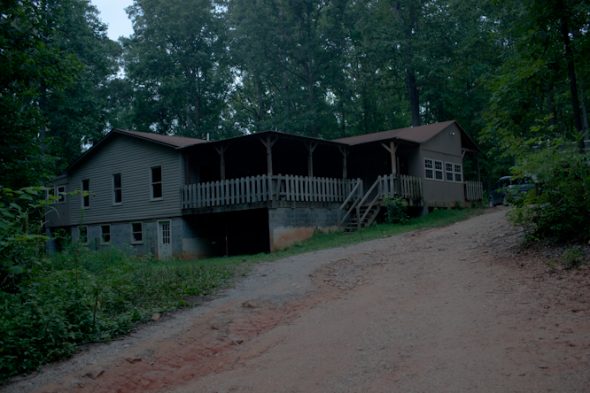
The school house.
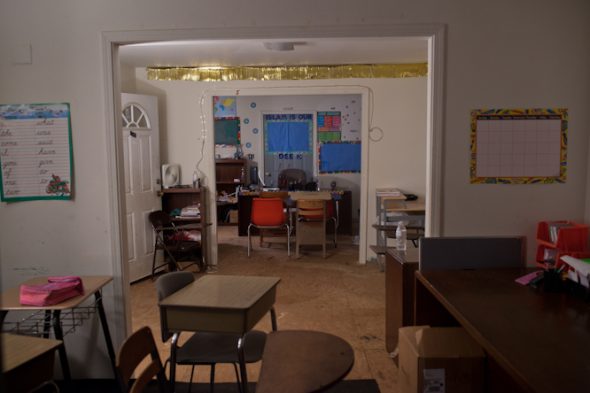
The two room school where many of the kids who live in and around Islamville attend.
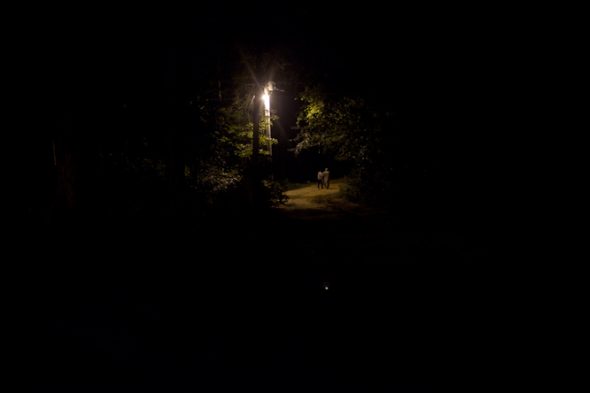
A dark walk back towards the car.
But there is love here. A love that must be acknowledge. They understand the transient nature of life and for them to be here – it is just a step to that which is greater than them. Your criticisms mean nothing to them. They are busy yearning for the Divine.
